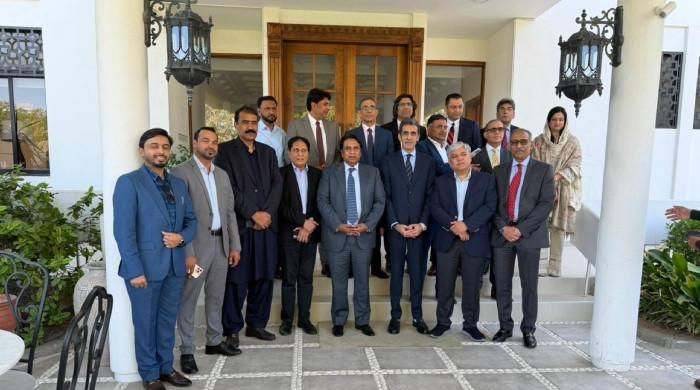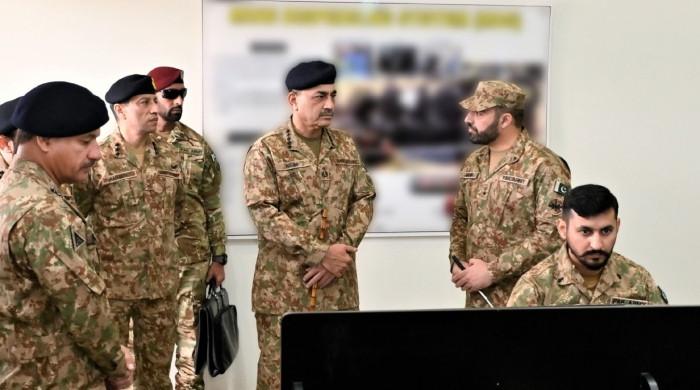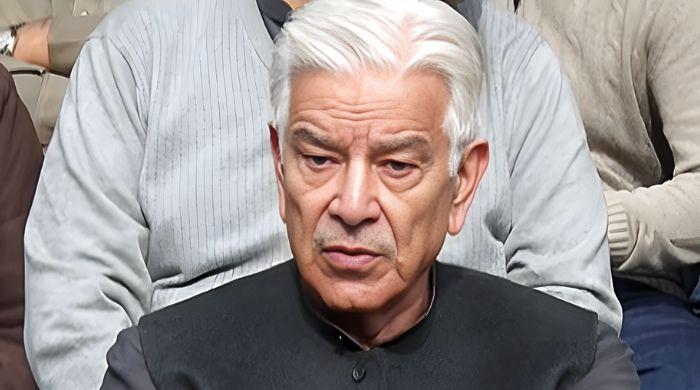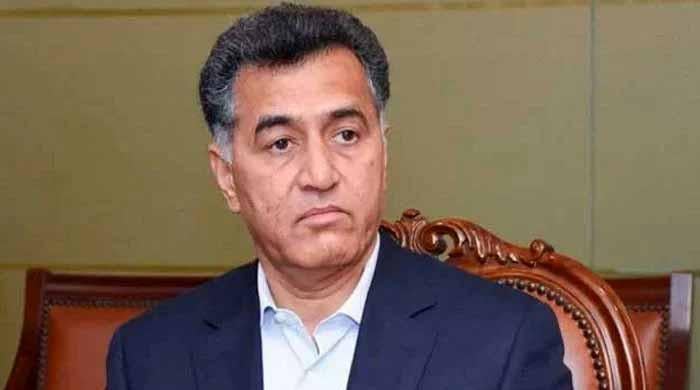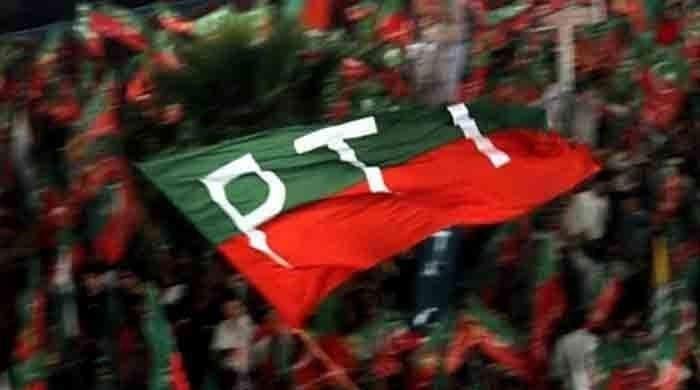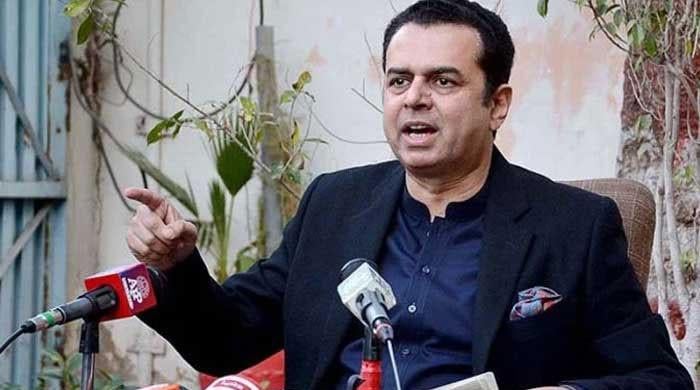'Darkest day': Pakistan marks Youm-e-Istehsal-e-Kashmir
"India must move from dispute denial to dispute resolution," says Prime Minister Shehbaz Sharif
August 05, 2024
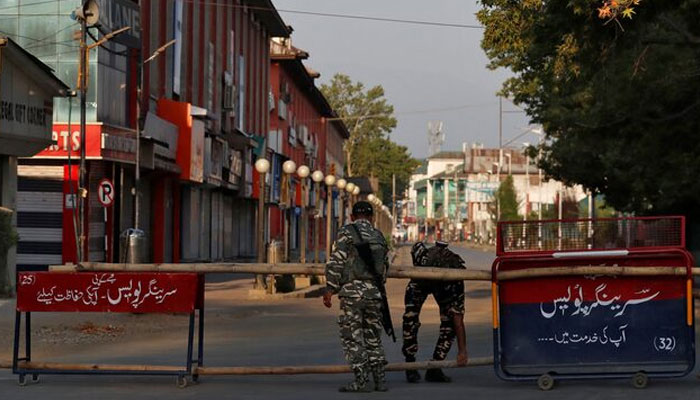
- Pakistan supports Kashmiri's right to self-determination, says Zardari.
- PM Shehbaz salute indomitable courage of the Kashmiri people.
- In 2019, India revoked Article 370 and 35-A of its Constitution.
Pakistan's top leadership condemned India's illegal occupation of Jammu and Kashmir as the country marked Youm-e-Istehsal-e-Kashmir on Monday.
President Asif Ali Zardari, Prime Minister Muhammad Shehbaz Sharif, CJCSC, services chiefs, and the armed forces said that for the past seven decades, the Kashmiris have waited for the United Nations to fulfil its solemn commitments.
They said it was crucial that the international community urge India to end its human rights violations in Indian Illegally Occupied Jammu and Kashmir (IIOJK) and implement the relevant UN Security Council resolutions.
President Zardari said that Pakistan, for its part, will continue to extend full moral, diplomatic and political support to the just struggle of the people of Jammu and Kashmir for the realisation of their inalienable right to self-determination, as enshrined in the relevant UN Security Council resolutions.
August 5, he said, marks the completion of five years of India's latest campaign to consolidate its illegal occupation of Jammu and Kashmir.
"On this day, five years ago, India took a number of unilateral and unlawful steps in IIOJK to undermine its internationally recognised disputed status," he said.
The president said since August 5, 2019, India has embarked upon a ceaseless campaign to alter the demographic structure and political landscape of IIOJK.
He said issuing domicile certificates to outsiders, registering temporary residents in the voters' lists, gerrymandering assembly constituencies, and modifying land and property ownership laws are some of the key features of this campaign.
"All these measures are in blatant violation of the United Nations Security Council resolutions and international law, including the 4th Geneva Convention," he said.
The president said India’s actions since August 5, 2019, demonstrate complete disregard for international law, the aspirations of the Kashmiri people, and the UN Security Council resolutions.
He said India would not succeed in suppressing the just struggle of the people of IIOJK through domestic legislation and judicial verdicts.
President Zardari said the continued presence of hundreds of thousands of Indian troops has turned IIOJK into one of the most heavily militarised zones in the world.
He said the gross human rights violations in IIOJK have been documented extensively and condemned globally.
"That the mistreatment of Kashmiri journalists and human rights defenders has further revealed India’s willingness to go to any lengths to silence dissenting voices," he said.
Meanwhile, Prime Minister Shehbaz Sharif said Pakistan would continue to extend its strong moral, political and diplomatic support to the Kashmiri people till the realisation of their inalienable right to self-determination.
He said the people and the government are observing the Yaum-e Istehsal today.
"This somber occasion reminds us of the grave consequences of India’s illegal actions of 5th August, 2019 vis-à-vis Indian Illegally Occupied Jammu and Kashmir (IIOJK)."
On August 5, 2019, he said India took a series of steps to consolidate its occupation of IIOJK.
"Ever since, India has been trying to convince the world that Jammu and Kashmir is an integral part of its territory. However, international law, historical facts, moral principles and the situation on the ground deny India’s baseless claims.
Today, in IIOJK, efforts are being made to silence the genuine leadership of the Kashmiri people and muzzle the media. The number of political prisoners remains in the thousands, while 14 political organisations have been outlawed."
"Harassment of innocent people, arbitrary detentions, and the so-called 'cordon and search operations' have become a matter of routine. The Indian forces are operating with impunity, according to them under different draconian laws," he added.
The PM said: "I, however, salute the indomitable courage of the Kashmiri people that has enabled them to withstand every Indian attempt to subjugate them. There is no doubt that India’s coercive methods have failed to diminish their yearning for the realization of their inalienable right to self-determination."
"History has proven, time and again, that durable peace in South Asia remains contingent upon the settlement of the Jammu and Kashmir dispute. In the interest of lasting peace and security in South Asia, India must move from dispute denial to dispute resolution," he added.
The prime minister said: "The international community must urge India to halt its egregious human rights violations in IIOJK; reverse its unilateral and illegal actions of 5th August, 2019; repeal the draconian laws; and implement the UN Security Council resolutions on Jammu and Kashmir."
Meanwhile, the Chairman Joint Chiefs of Staff Committee (CJCSC), services chiefs, and the Pakistan Armed Forces have reaffirmed their steadfast solidarity with the courageous and resilient people of IIOJK.
"We unequivocally support their legitimate and protracted struggle for the inalienable right to self-determination," the Inter-Services Public Relations (ISPR) in a statement said.
The Indian security forces' egregious violations of international law, including the ongoing draconian military lockdown, unlawful attempts to alter the demographic structure of the occupied territory, and persistent human rights abuses, are deeply reprehensible.
The military leadership and armed forces feel unjust actions, coupled with the Indian government's belligerent rhetoric and hostile posturing, perpetuate the security and humanitarian crises in IIOJK, posing a constant threat to regional stability.
They said it is axiomatic that lasting peace and stability in the region hinge on the resolution of the long-standing Kashmir dispute, in accordance with United Nations resolutions and the aspirations of the Kashmiri people.
Meanwhile, President Azad and Jammu Kashmir (AJK) Barrister Sultan Mahmood Chaudhry, while terming August 5 as the darkest day in Kashmir's history, has said that India's apartheid regime's move to strip the region of its special status was a brazen violation of the UNSC resolutions.
In his video message, the president said that the main motive behind the revocation of Article 370 and 35-A of the Indian Constitution was to change the political and constitutional status of the disputed territory of Jammu and Kashmir.
India has been committing state terrorism against the people of Occupied Jammu and Kashmir since a long time, however, the level of brutality and state repression has intensified significantly after August 5, 2019, he said.




